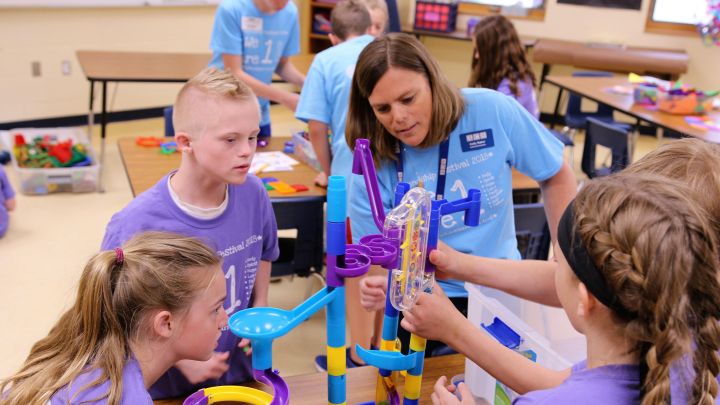Important Things You Should Know
If you are exploring inclusive education, you might run into some concerns along the way. We hear many of these concerns, and we find that many of them are based on incorrect information. Following are a few of the most common myths or misunderstandings about inclusive education, and the corresponding truths that can help reframe the conversation.
Myths vs. Facts
That is not true! Inclusive education often becomes more cost-effective than a segregated classroom. It also benefits all students, not just a few. By thinking creatively and planning for individual student needs, it is possible.
We advocate for tuition equity, which we see as an essential component of inclusive education and a school’s culture of belonging. While a complete shift in tuition models might not be immediately possible for a school, All Belong can work with administrators to develop budgets and tuition structures that do not penalize families who might have a student who needs support services.
The word “program” represents a box. We tend to build boxes for various diagnoses and put kids in them. But boxes have limits. That’s why programs are an inefficient use of resources. All Belong’s inclusive education model builds customized support systems, benefitting every student.
Some schools are often able to provide support without a partnership. However, special educators in those environments often feel isolated, like they are carrying the world on their shoulders. When a school partners with All Belong, we consult with all school staff to work together on a common goal and continuously move forward to serve the needs of a growing student population.
This is rarely the case. Inclusion is about intentional planning to bring all students together in the classroom, not just in physical proximity, but in relational community. We design systems that help students with support needs work well using tools like person-guided planning and All Belong’s Head and Heart 3-step process. To learn more about person-guided planning and the process of inclusive education, listen to episode 3 with Dr. Kate Strater of our All Belong Podcast
This is absolutely not true. There is no research that supports this conclusion. In fact, the research points in the opposite direction. We also know anecdotally from our 40+ years of experience that many students benefit academically when inclusivity becomes the norm. With inclusive education, every student is known excellently, and resources are applied individually to help each one succeed.
